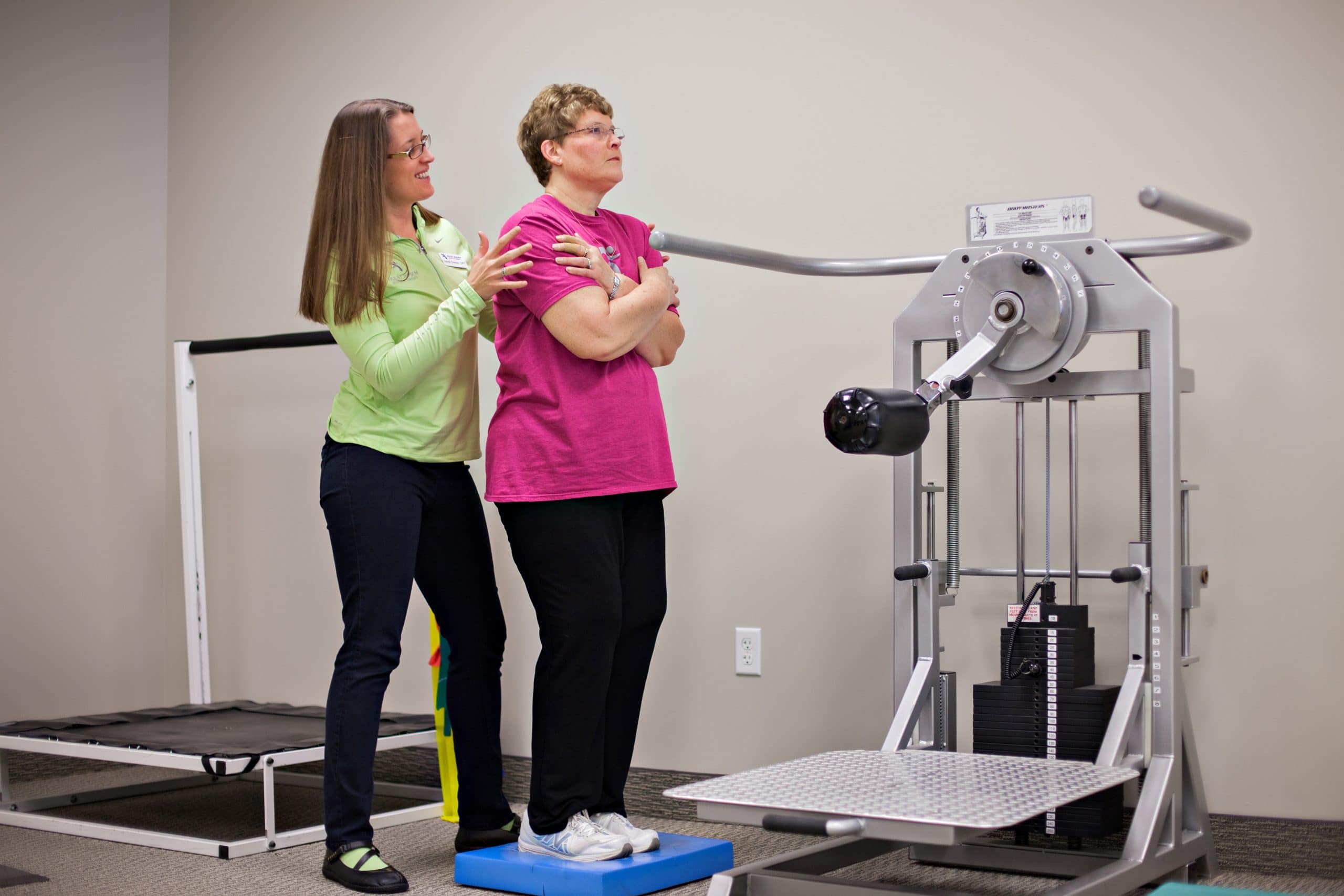Calming Your Fear of Dizziness
I love treating dizzy people. Does that sound weird? Really, treating people with vestibular disorders is a passion of mine. When a person experiences pain, we can all relate to that. We have all had some type of injury or accident that has caused us pain and typically we can see the cause of our pain. A cut, a bruise, a joint that is red or swollen. Pain makes sense and can be recognized by everyone. When someone is dizzy though, you can’t necessarily “see” the cause. There is no large bruise or bump. There is no gash or swelling. You didn’t necessarily swing a golf club or kick a soccer ball that caused the “injury”. Many times, when someone is experiencing vertigo or dizzy symptoms, they can feel debilitated but not be able to show someone why they are hurt. It can be isolating and others sometimes might not understand. Additionally, we know how to cope with pain. We have been taught to rest, ice, elevate, and compress, or we can take pain medications or muscle relaxers that have been prescribed to us or we have purchased over the counter. When someone is dealing with dizziness or vertigo, it is most likely a new sensation that we aren’t used to encountering. Our body can go into panic mode. We sweat, get nauseous, throw up, and are downright scared. Am I having a stroke? Is there something going on with my heart? Is this MS or some other condition? When it is a first-time experience with dizzy symptoms, we have no frame of reference to relate it to and that is frightening.

As a physical therapist that has been trained in treating vestibular disorders, my first concern is to make sure you understand why you are experiencing what you are feeling. Knowledge is power. If you can understand what is going on in your body, you can begin the process of healing and hopefully calm down your “fight or flight” system. Dizziness can occur for a variety of reasons and through our evaluation and examination process, we can begin to figure out why you are having your dizzy symptoms.
The most common reason for vertigo is BPPV, benign paroxysmal positional vertigo. Simply put, this occurs when crystals, called otoconia, become displaced in your inner ear and fall into canals where they aren’t supposed to be. Once in these canals, certain movements can cause horrible dizziness. We can evaluate which canal those crystals are in and then perform maneuvers to get them to cycle out of those canals to eliminate your symptoms.

Another reason people have dizziness is due to injury to their vestibular nerve. When that type of injury occurs, we must teach the brain a new normal so you don’t feel dizzy when you move. This involves different exercises involving head movements, walking, and balance activities.
Neither one of the two conditions above is a matter of life and death, but when you are experiencing that type of dizziness, it can feel like something more serious is going on. Going to a physical therapist and learning what is happening can empower you to take control of your situation and then hopefully eliminate your symptoms. So if you are experiencing dizziness or vertigo, don’t live with it. Talk with your doctor and go see a physical therapist – you will be thankful you did!
